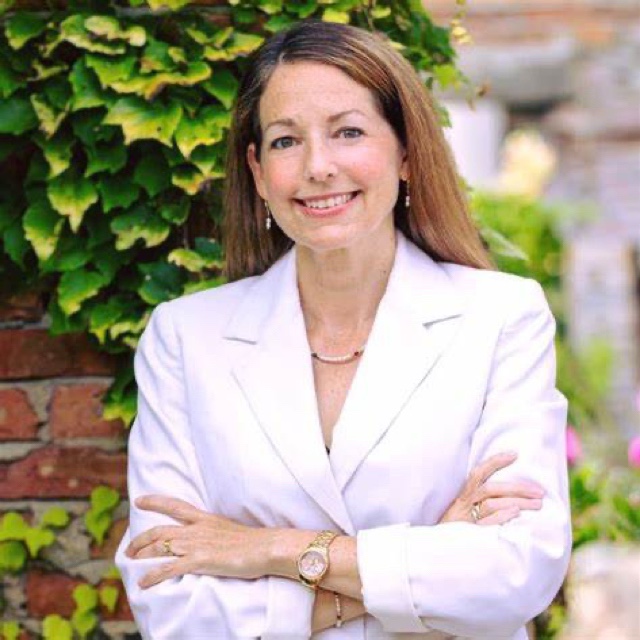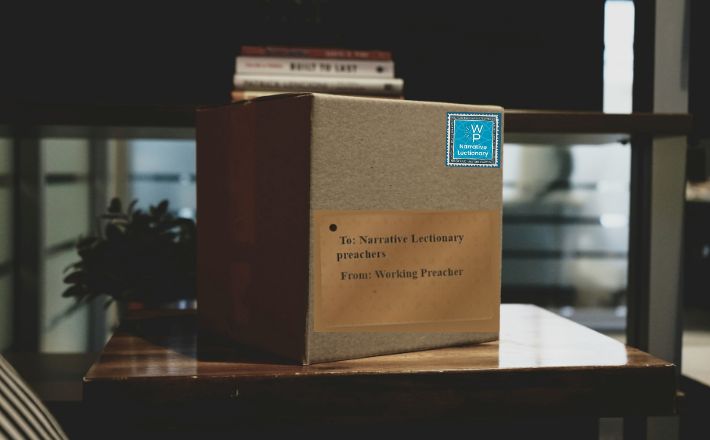Something changed in my preaching when my church installed a prayground up front in the sanctuary. A “prayground” is a space for all ages to participate in worship while also sitting on soft pillows or shaggy rug squares and using fidgets. I’ll never forget the time when I was preaching and asked a rhetorical question, and a small voice from the prayground responded with the correct answer. This young child is described by their parent as “easily distracted,” yet using a fidget helped them focus and listen to the sermon—maybe even more closely than the adults!
Our church’s prayground is part of creating an inclusive ministry for all ages, helping our church honor the diverse ways people show up and provide accommodations to meet their specific needs. We are a United Church of Christ congregation designated as WISE (Welcoming, Inclusive, Supportive, and Engaged) for mental health, and neuroinclusive ministries like the prayground make preaching more accessible.
Testify to God showing up in neurodiversity
Preachers are called by God to testify to the ways God shows up in our lives and in the world. One way God shows up is in the neurodiversity of the body of Christ. Therefore, preachers are invited to testify to the power of the neurodiversity paradigm as an expression of the extravagant welcome into the church for all people, because all are made in Imago Dei. “All” includes people within the neurodiversity paradigm: anxiety, Autism, ADHD, bipolar, CPTSD, depression, dyslexia, PTSD, and stuttering (just to list the neurodiversity within my own extended family).
Neurodiversity is not a medical condition, nor a diagnosis. Neurodiversity is the range of differences in brain function and behavior. Being neurodivergent is not labeled as bad or a problem needing to be fixed. Being neurodivergent signifies a self-identity that empowers the person to describe their brain differences in non-stigmatized ways.
My book, Blessed Minds: Breaking the Silence About Neurodiversity, is a guide for learning and exploring how neurodiversity shapes our ways of being church. In everything from preaching to Sunday school to preparing people for ordination into Christian ministry, neurodiversity impacts the entire body of Christ, from the cradle to the grave. I wrote Blessed Minds to equip and empower congregations to adapt their ministries to accommodate people with brain differences. Embracing disability theology’s claim that naming our unique identities is a strength and not a weakness, preaching can testify to the beauty, power, and joy in fully embodying our ways of being in the world, including being neurodivergent.
To testify to the joy of neurodiversity is the invitation of preachers today. Neurodivergent folks are in the church’s pulpits, choirs, pews, Sunday school classrooms, and fellowship halls. One powerful way to end the stigma is to celebrate brain differences by focusing on the positive features, such as creative thinking and expression. There is a creative playfulness when we open ourselves to the gifts of neurodiversity. Disability theologian Erin Raffety encourages churches to embrace more opportunities for play in our life together. Based on her research, through play we can relax our minds and connect in authentic ways with one another. Raffety says time spent playing together is time well spent because it builds Christian community. This connection is at the heart of being the body of Christ. Neurodivergent folks can provide leadership by showing the church how play and creativity are forms of discipleship.
In a time when diversity is misunderstood, preachers can shine God’s light of love upon all people who might be feeling afraid of being targeted, stigmatized, and punished because of their neurodivergence. There is nothing broken, sinful, or cursed about being neurodivergent. The church can be a sacred community for authentic belonging, a place where the mask of “normal” can be removed, and we can fully receive God’s love without exception.
Neurodivergent preachers can let their light shine, knowing that the mind of Christ shines through them. As I come to trust my own God story more, I am learning to trust the Spirit’s way of showing up in my own neurodivergence through times of prayer and meditative practices. My neurodivergent spirituality, or neurospirituality (what happens when a neurodivergent person of faith experiences an encounter with the holy), includes dreams and visions of God’s presence that bless me with a sense of deep peace and inner healing. When I preach about God’s compassionate presence in my life, I do so from an authentic experience filtered through my neurodiversity. Neurodivergent preachers can also be unafraid to use fidgets while preaching, such as when I hold onto prayer beads in the pulpit.
Preaching about God’s redeeming love for neurodivergent children of God is soul- and life-saving work. I am a survivor of suicide loss and wish my 16-year-old neurodivergent niece could have experienced an affirming Christian community, instead of experiencing stigma and shame. Her story amplifies for me the destructive power of stigma and shame associated with brain differences as a contributing factor to increased risks of suicide. Preachers can give a life-saving word of hope by affirming and celebrating the diversity of minds created in God’s image. To boldly name neurodivergent folks as the recipients of God’s unconditional love, out loud from the pulpit, is to offer a glass of cool, life-saving water to weary souls thirsting for the good news.


